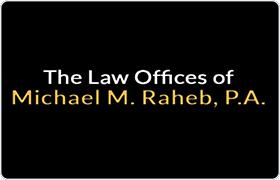Bowling Green Criminal Lawyer, Florida
Sponsored Law Firm
-
 x
x

Click For More Info:
-
Law Offices of Michael M. Raheb P.A.
2423 First St Fort Myers, FL 33901» view mapCriminal Defense Law Legal Problem? Call Us 24/7
At the Law Office of Michael M. Raheb, we strive to ensure each of our clients receives the individual attention and representation necessary to obtain an optimal outcome.
800-890-8981
Alexis Kay Logan
Litigation, Criminal, Business, Bankruptcy & Debt
Status: In Good Standing Licensed: 18 Years
Glen Robert Lansky
Family Law, Divorce & Family Law, Criminal, Accident & Injury
Status: In Good Standing Licensed: 31 Years
Anthony Wayne Surber
Civil Rights, Adoption, Administrative Law, Federal Appellate Practice, Criminal
Status: In Good Standing Licensed: 24 Years
 Michael M. Raheb Fort Myers, FL
Michael M. Raheb Fort Myers, FL Practice AreasExpertise
Practice AreasExpertise
